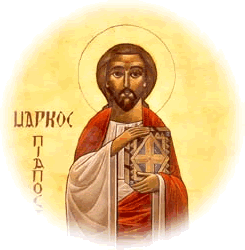The misery of Copts in Egypt
Said Shehata
03/10/2012
While it is not a new thing to suffer as a Copt, the raised expectations of better treatment after the revolution turned to be a big frustration. It is not simply about complaining; the goal of the article is to highlight the Copts’ plight and how to overcome those sufferings.
This article will highlight some recent incidents that support my argument of the Copts’ dilemma. It will also examine the weak reaction by the current regime, the lack of effort to seriously tackle those issues, and it will provide some suggestions for ways forward.
Bishoy Kameel, a Coptic teacher in Sohag, was sentenced to six years in prison for insulting Islam and defaming President Morsi on his Facebook page. This sentence was confirmed by an appeal court in Sohag, and the whole process happened in a matter of days.
Nageeb Gibrial, Bishoy’s lawyer, told me that the conditions of a fair trial did not exist because of intimidation by Salafists surrounding the court and inside it. Gibrial got permission from the Minister of Justice to transfer the trial to a court in Cairo but it was not implemented by the chairman of the appeal court in Sohag.
Bishoy was put in prison in July 2012. His lawyer presented evidence that the materials on his defendant’s Facebook page were not his, but the court did not consider this evidence.
The Salafists gathered outside the court building tried to attack Bishoy and shouted slogans such as “death to the infidel.” They also threatened to burn Coptic houses and kill Bishoy’s family if he was released. It is very difficult to expect justice in this intimidating atmosphere.
On the other hand, Abou Islam, who confessed to ripping up a Bible and who described Christianity in an interview with Al-Tahrir newspaper as a religion of infidels, was not detained. Eventually, however, he was put to trial, and his trial was then postponed, although his confession and video materials proved that he insulted Christianity.
If one looks at the two cases, it is obvious that there is discrimination against Christians, and some questions should be raised. Why did it take time to get Abou Islam before trial and a fast track trial for Bishoy? Why was Abou Islam not detained until the end of his trial? Why did Egyptian leaders such as President Morsi not condemn Abou Islam, as they did the producer of the anti-Islam film? It looks as if the rules were applied differently to the same offence because of religion.
The other incident is the forced displacement of Copts from Rafah, Sinai. There were threats from Islamist groups to Christians to leave Rafah. There were calls from the Church in Egypt for the government to take measures in order to protect Christians in Rafah.
The reaction of the government can be described as similar to the ousted regime of Mubarak. Hisham Qandeel, the prime minister, said that the nine Christian families who left Rafah did so of their own accord. He added: “We must uproot fear and provide all security measures to every citizen.” However, there were in fact threats to Copts in Rafah and this was the main reason for their escape.
There are urgent steps that should be taken by the current regime to ease the pressure and sufferings of Copts in Egypt. First, equal treatment before law should apply to all Egyptians. There should be no double standards when it comes to insulting Islam and Christianity. Secondly, some lines should be drawn against the radical Islamists through laws, media and Al-Azhar University.
Moreover, an organised and well-thought out campaign to raise the awareness of Copts’ rights as equal citizens to other Egyptians is urgently needed, sooner rather than later. Finally, Christians are an important part of Egypt and there is no Egypt and no democratic Egypt without Copts beside Muslims.


[…] Read the full news: The misery of Copts in Egypt […]